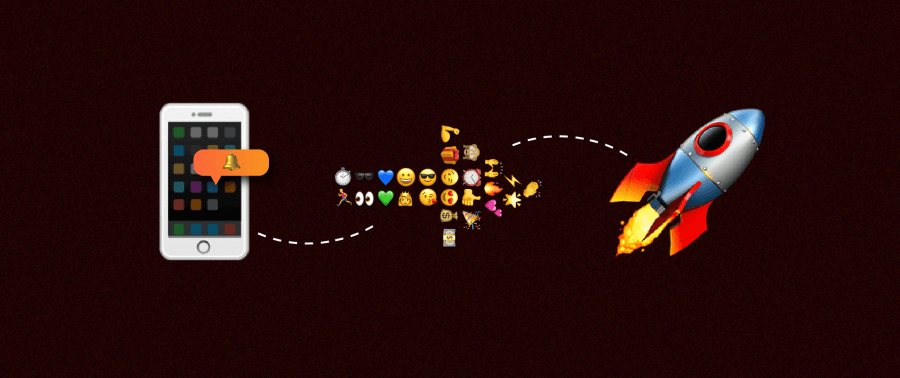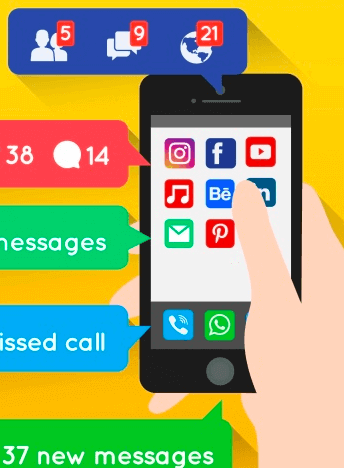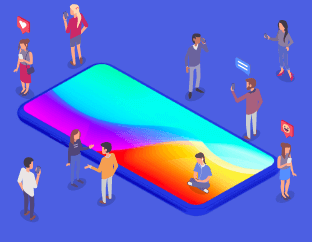Learn how you can Unlock Limitless Customer Lifetime Value with CleverTap’s All-in-One Customer Engagement Platform.

When you first launched your mobile app, you probably had big dreams of people flocking to download it, sharing it all over their social networks, leaving five-star reviews, and cheering your name while they happily tap-tap-tapped away on their phones.
In other words, you dreamed it would go big. Flappy Bird big. Candy Crush big, even! And you’d be the proud owner of the most popular, useful, fun — and profitable — app on the planet.
Then reality set in. The launch went pretty well, but… it’s no Candy Crush. And as time goes by, it’s not going crazy-viral-popular like you thought it would.
What gives? And how do you fix it? ?
It’s not enough to provide users with a great first experience. Your app has to be engaging enough to keep them coming back for more, make it a part of their daily lives, and share it with their friends.
But keeping users engaged over the long term is easier said than done.
One effective way to keep users coming back to your app? Push notifications.
60% of Android users and 45% of iOS users opt-in to receive push notifications, making them the #1 channel for mobile marketers to encourage repeat app usage.* When used effectively, they help users experience your app’s value early and often.
Want people to log their exercise routines or meal entries? Beat their friend’s new high score? Shop a sale? Or check out an awesome new feature? Perfect opportunities for push.
Don’t think of push notifications as one more thing you have to develop and maintain. Think of them as an extension of the app itself.
Done right, push notifications can increase your 30-day retention by as much as 20% — and by 7x if they include personalization.* They keep your app top of mind and bring users back into your app.
The difference between a bad push notification and a good one ultimately comes down to your messaging. Are you providing value with timely, personalized messages? Or are you spamming users with generic notifications?
Technology has caused massive shifts in the way we exchange information, and if you want to engage with your audience, you have to speak their language.
Emojis are the ideal tool to achieve all those goals and more.

Push Notification Secrets
from Today’s Top Mobile Apps
It’s easy to think of emojis as silly or frivolous. But these smiley faces, cartoon animals, and food illustrations are actually serious business.
They might seem like a newfangled fad, but emojis were first used in 1998.*
And their predecessor emoticons have been around since 1881!*
That’s right – the concept of using smiley faces in typeset predates computers, television, and even sliced bread.
You don’t have a lot of real estate to work with in push notifications, so you need to keep the messaging clear, concise, relevant, and immediately understandable.
When paired with push, emojis are proven to improve click-through rates by 124%, boost conversions by 9%, and increase day 2 retention by 28%.*
Here’s why emojis are so effective:
Emojis humanize text like nothing else can. Studies show our brains process emoji as nonverbal information, so we read them as emotional communication, not words.*
When you read plain text, it can be hard to judge tone. “Is this person joking? Or are they being rude?” Cut through that confusion with a single emoji.
Emojis like ? and ? can literally change a person’s mood.*
Every pleasant customer interaction — no matter how small — creates a positive association with your brand. It’s a mini-dose of ? between you and your users, and those small experiences build to create a lasting positive impression.
Our brains are so used to processing massive amounts of text that we’ve become blind to it.* (When’s the last time you actually read through an email, instead of skimming it?)
This means your carefully worded text notification may get seen but instantly ignored. By including emojis, you’re adding colors, shapes, and emotions — all of which catch the eye and get users to take a second look.
Businesses are impersonal and easily replaced. Don’t like your bank? Change banks!
When you add in emotion and speak your user’s language with emojis, you go from faceless brand to friend. No one wants to ditch a friend.
And yes — emojis significantly boost engagement and retention.
Don’t just take my word for it, though. The genius minds on CleverTap’s data science team analyzed across 11 billion push notifications to see what improved click-through rates most.
Are you ready for this?
Push notifications with emojis saw an average 124% lift in CTRs. And emojis increase conversions by up to 9%.
A simple ? , ?, or ? really can make that big of a difference.
Now that you know the value of using emojis in your messaging, here are some best practices for including them in your push notifications.
Clear beats cute every time.
With over 2,000 emojis to choose from, you can say just about anything you want. But remember – messaging needs to be clear in order to prompt users to take action.
So don’t go emoji crazy. One or two emojis per notification is enough to spice up your message while still getting your point across.
Don’t leave users guessing.
If you rely on a single emoji or even a string of emojis to do all the heavy lifting of a full sentence, people will have to spend precious seconds guessing what you might mean. Using an emoji to replace a single word or add a bit of emotion is much more effective.
Speak your audience’s language.
When selecting the best emoji for your notification, it’s a good idea to research and include the ones your customers use frequently. Overall, smiley faces are king, with hand gestures and hearts following.*
Understand the emoji’s meaning.
One person’s manicure emoji is another person’s sassy retort. ?? If you’re ever uncertain what an emoji means, you can get clarification right from the source: the Unicode Consortium’s Emojipedia.
Don’t use emojis in every message.
Only use emojis when you’re sharing good news. Reminding someone of a late payment? Telling a customer their order won’t arrive on time? Not a good place for emojis. Save them for the good times and keep them out of serious business.
Stay positive.
When you’re selecting the right emoji for the job, stay with smiley and upbeat. Emoji like ? or ? evoke negative emotions, so stick with the happy stuff.
Above all, remember to use language that resonates with your customers, and that includes emojis. If your app’s user base loves unicorns, use unicorns! If they’re more no-nonsense, stick to the basics. When in doubt, there’s always the taco emoji — everyone loves tacos. ?

See how today’s top brands use CleverTap to drive long-term growth and retention